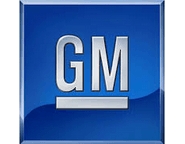Analysis

October 25, 2019
UAW Ratifies Labor Deal With GM, Moves on to Ford
Written by Sandy Williams
United Auto Workers at General Motors approved a labor deal on Friday ending a 40-day strike that disrupted operations for GM and its suppliers. About 57 percent of GM’s 49,000 union workers voted in favor of ratifying the new four-year agreement.
“General Motors members have spoken,” said Terry Dittes, UAW Vice President and Director of the UAW-GM Department. “We are all so incredibly proud of UAW-GM members who captured the hearts and minds of a nation. Their sacrifice and courageous stand addressed the two-tier wage structure and permanent temporary worker classification that has plagued working class Americans.”
Among the wins secured by the union are:
• A 3 percent pay raise in the second and fourth year of the contract and 4 percent lump sum payments in the first and third years;
• No cap on profit sharing ($1,000 for every $1 billion the company earns);
• Three-year pathway for temporary workers to become permanent employees;
• New hires earn full pay rate, increased to $32 per hour from $30, in four years instead of eight;
• No changes to health care benefits;
• Signing bonus of $11,000 for permanent workers and $4,500 for temporary workers;
• Pledge by GM to invest $7.7 billion in its U.S. plants, including keeping Detroit-Hamtramck Assembly open to build electric trucks and vans.
A sore point for Ohio workers was the closing of the Lordstown plant, which will not be reallocated by GM as hoped. The agreement includes acceptance by workers of the permanent closing of three plants, including Lordstown. GM says it plans to bring battery cell production to the region, creating about 1,000 manufacturing jobs.
The Lordstown facility will be sold to Lordstown Motors Corp., which plans to build electric pickup trucks. About 400 jobs will be created.
The new agreement is estimated to add about $100 million annually to GM labor costs. The prolonged strike cost the company about $1.75 billion, according to Anderson Economic Group.
Employees will return to work immediately and will have opportunities to work overtime to recoup some of their lost wages during the strike. GM plans to prioritize filling back-ordered parts for dealerships and expects to have production running at full strength in the next several days.
“We delivered a contract that recognizes our employees for the important contributions they make to the overall success of the company, with a strong wage and benefit package and additional investment and job growth in our U.S. operations,” said Mary Barra, GM chairman and CEO. “GM is proud to provide good-paying jobs to tens of thousands of employees in America and to grow our substantial investment in the U.S. As one team, we can move forward and stay focused on our priorities of safety and building high-quality cars, trucks and crossovers for our customers.”
UAW President Gary Jones announced that the union will proceed with pattern bargaining at Ford, working with UAW Vice President Rory Gamble, Director of the UAW-Ford Department.






